Disclosure: This article contains affiliate links. We may earn a commission from purchases at no extra cost to you, which helps our travel content.
After two decades of exploring underground caverns across continents, I never expected a flat, watery wilderness to leave me speechless. Yet here I was, perched at the edge of Africa's Eden, sipping locally sourced rooibos tea while hippos grunted their evening symphony across the floodplain. Maun, Botswana's dusty frontier town, serves as the unassuming gateway to one of Earth's most extraordinary ecosystems – the Okavango Delta. While attending the International Wilderness Rescue Conference here last summer, I extended my stay for a proper ultra-luxury safari experience. What followed was a week of wildlife encounters that rivaled any natural wonder I've documented in my years of exploration. This wasn't just another business trip with a side adventure; this was Botswana showing me why safari was invented here in the first place.
Maun: The Safari Capital You Need to Know
Maun doesn't pretend to be glamorous. This frontier town is delightfully utilitarian – a jumble of safari outfitters, small restaurants, and the occasional wandering goat. Yet beneath the dusty exterior beats the heart of Botswana's tourism industry.
My base was the exceptional Royal Tree Lodge, a private reserve just outside town where giraffes casually strolled past my veranda each morning. The property strikes that perfect balance between luxury and authenticity, with spacious tented suites that feel more like upscale apartments than camping accommodations.
My first proper day began with a visit to the Nhabe Museum, offering crucial context about the region's ecology and the delicate relationship between the Delta's waters and the Kalahari Desert's thirst. The museum curator, noting my interest in caves, mentioned ancient rock formations at nearby Gcwihaba Caverns – sadly too distant for this trip, but immediately added to my 'next visit' list.
In town, I discovered The Old Bridge Backpackers, which despite its budget-friendly name, houses one of Maun's best riverside restaurants. Here, I enjoyed a sundowner with local firefighters I'd met at the conference, trading stories of wilderness rescues while watching the sunset paint the Thamalakane River golden.
For serious provisions before heading into the Delta, Rileys Hotel houses an excellent deli and wine shop. I stocked up on specialty teas to enjoy during bush breakfasts, including a lovely local rooibos blend that paired perfectly with early morning game viewing.
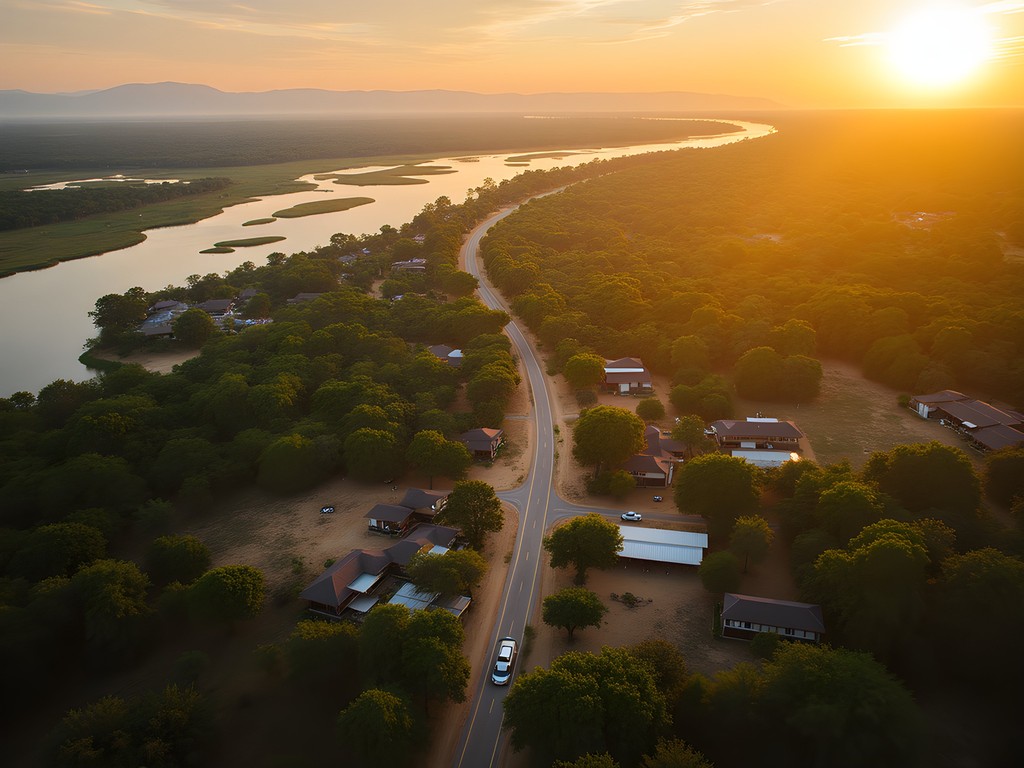
💡 Pro Tips
- Book accommodation in Maun at least one night before and after your Delta excursions to allow for transfer logistics
- Visit the Maun Educational Park for a gentle wildlife introduction before heading into the deep Delta
- The airport has limited facilities, so bring water and snacks if you have a long wait for connections
Luxury Mokoro Expeditions: Gliding Through Nature's Masterpiece
If there's one quintessential Okavango experience, it's the mokoro – a traditional dugout canoe that glides silently through the Delta's labyrinthine channels. But forget any notions of roughing it; the ultra-luxury version elevates this to an art form.
My expedition with Wilderness Safaris transformed the traditional mokoro journey into something extraordinary. Picture this: a dedicated guide poling you through crystal waters while a separate mokoro follows with a private chef and fully stocked bar. We paused on a palm-fringed island where staff had somehow preceded us to set up a gourmet picnic complete with proper china and crystal glasses.
The perspective from a mokoro is unmatched – you're literally at water level, eye-to-eye with tiny painted reed frogs and water lilies that unfold like nature's origami. The silence is profound, broken only by the gentle swish of the pole and occasional snorts from submerged hippos (kept at a very respectful distance, I assure you).
For this water-based adventure, I was grateful for my waterproof binoculars, which proved invaluable for spotting distant birds and wildlife while maintaining stability in the gently rocking mokoro. The image clarity was exceptional even in the challenging light conditions under the papyrus canopy.
The most memorable moment came during a sunset mokoro excursion when we silently approached a herd of elephants crossing between islands. Our guide, Tau, positioned us perfectly downwind as these massive creatures waded trunk-deep, occasionally submerging completely with only their trunks raised like periscopes. The golden light, the gentle splashing, and the absolute privilege of witnessing this intimate moment without disturbing these magnificent animals – this is what the Delta offers that nowhere else can match.
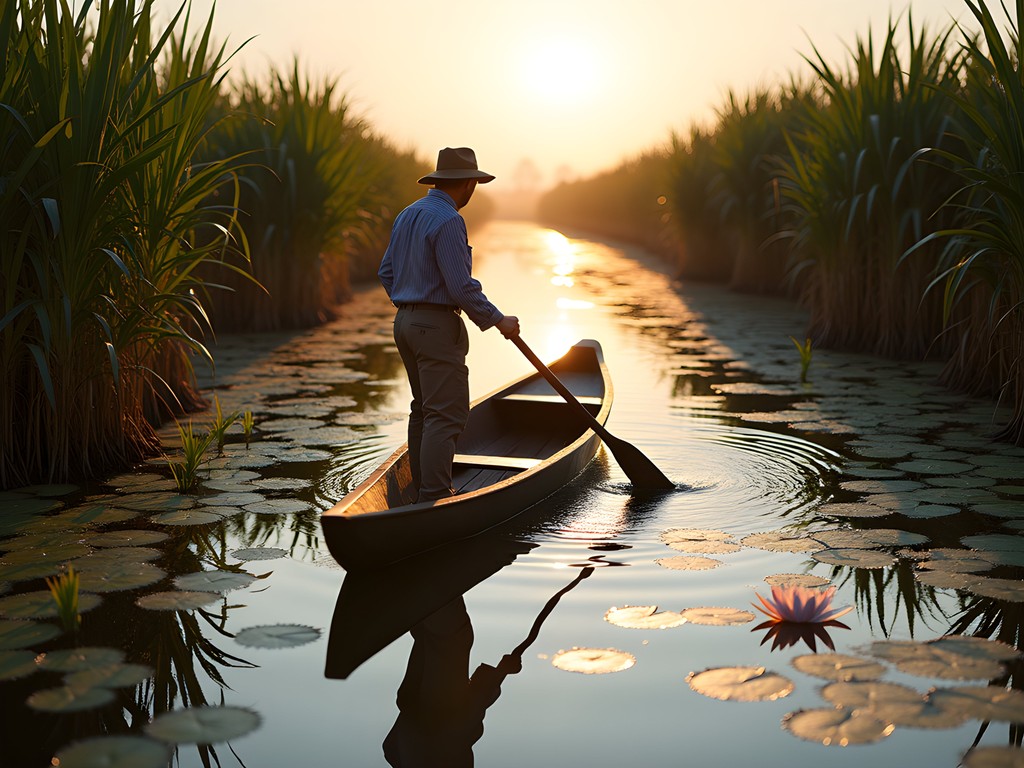
💡 Pro Tips
- Request early morning mokoro trips for the best wildlife viewing and cooler temperatures
- Bring a good hat with a chin strap – you'll want sun protection but don't want to lose it overboard
- Polarized sunglasses are essential for cutting glare and spotting underwater life
Wildlife Encounters: Beyond the Big Five
The Okavango's unique ecosystem – a wetland paradise in the middle of a desert – creates wildlife viewing opportunities that defy expectations. While the Big Five rightfully draw attention, it's the Delta's extraordinary diversity that truly astonishes.
My stay at Sandibe Okavango Safari Lodge provided the perfect base for exploration, with architecturally stunning accommodations inspired by weaver bird nests and pangolin scales. Each suite features a private plunge pool overlooking active game paths, allowing wildlife viewing without leaving your deck.
The morning game drives revealed the expected – lions lounging after night hunts, elephants browsing among mopane trees, and the occasional leopard draped across an acacia branch. But it was the unexpected encounters that proved most memorable.
One afternoon, our guide James diverted from the planned route, following fresh wild dog tracks. After an hour of careful tracking, we found the pack – 14 adults and 7 pups – in a rare playful mood at their den site. We spent two hours observing these endangered predators, witnessing behaviors few get to see. James explained that wild dogs are among Africa's most efficient hunters with an 80% success rate, compared to lions' mere 30%.
The birding exceeded all expectations. As someone who typically focuses on underground ecosystems, I found myself unexpectedly captivated by the Delta's avian diversity. A particular highlight was spotting the elusive Pel's fishing owl, its massive orange eyes glowing in the spotlight during a night drive.
For wildlife photography, my telephoto zoom lens proved invaluable. The versatile range allowed me to capture both landscape contexts and intimate animal portraits without changing lenses in dusty conditions. The image stabilization was particularly useful during boat safaris when shooting from moving platforms.
The most profound wildlife experience came unexpectedly. While enjoying morning tea on my deck, I witnessed a female leopard teaching her two cubs to hunt, stalking through the reeds not thirty meters from where I sat. I remained perfectly still, not even reaching for my camera, simply absorbing a wild moment that no planned safari activity could have orchestrated.
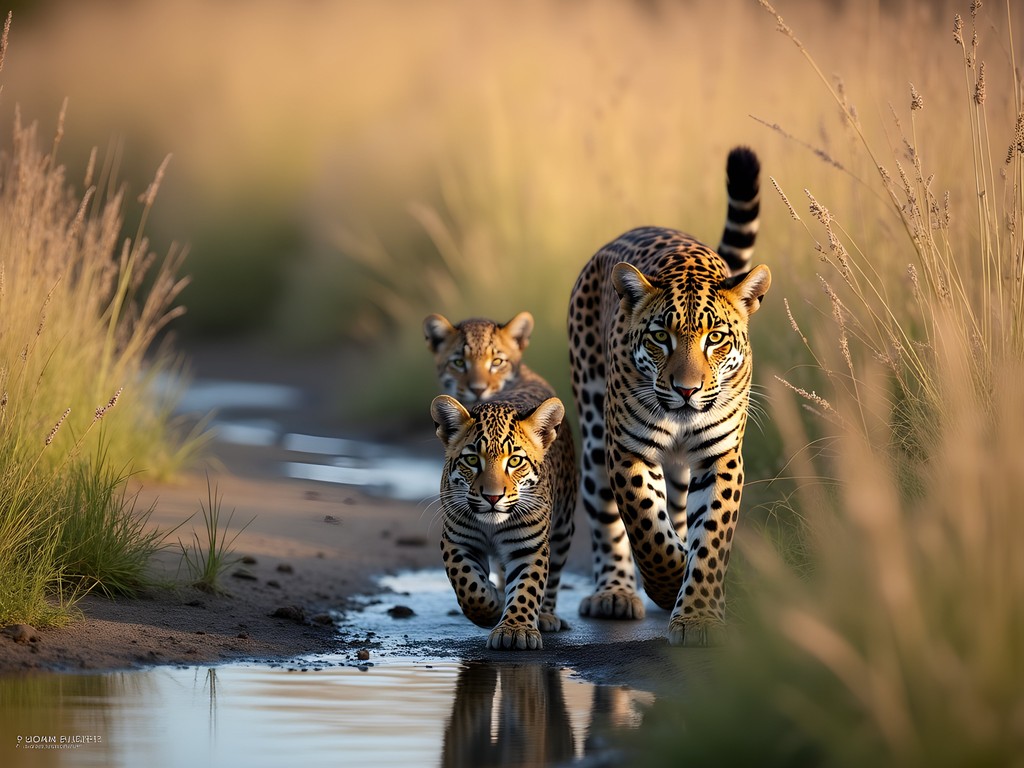
💡 Pro Tips
- Pack neutral-colored clothing (khaki, olive, tan) for game drives to blend with the environment
- Bring a good quality headlamp with a red light setting for nighttime navigation without disturbing wildlife
- Ask your guide about seasonal specialties – different times of year offer dramatically different wildlife experiences
Tea and Terrain: Cultural Connections in the Delta
As both a tea enthusiast and someone fascinated by cultural landscapes, the Okavango offered unexpected delights beyond wildlife. The Delta's communities have developed unique relationships with this challenging environment, creating traditions worth exploring.
At Xaranna Okavango Delta Camp, I participated in a tea ceremony with local staff members who shared stories of growing up in Delta villages. The ritual involved locally harvested herbs mixed with traditional rooibos, served in handcrafted clay cups. What struck me was how the ceremony paralleled tea rituals I'd experienced in Japan and Taiwan, despite the vastly different settings – all sharing that moment of pause and connection.
For my personal tea rituals during quiet moments, I brought along my trusty travel tea set which packs neatly into a carrying case. This allowed me to enjoy proper tea service on my private deck while watching elephants wade through the channels below – a surreal juxtaposition of refined ritual and raw wilderness.
The local basketry tradition proved fascinating, with master weavers creating intricate patterns that tell stories of the Delta's seasonal rhythms. I spent an afternoon with a weaver named Naledi, whose fingers moved with hypnotic precision, transforming palm fibers into functional art. She explained how different patterns represented water flow, fish movements, and animal migrations.
One evening, our guide arranged a special sunset experience atop a granite kopje (rocky outcrop) that rises from the otherwise flat landscape. As we sipped sundowners, he explained how these geological features served as navigation landmarks for early explorers and continue to function as important markers for local people traversing the constantly changing waterways.
The connection between underground water systems and the Delta's seasonal flooding reminded me of my caving experiences, where hidden water sources often reveal themselves in unexpected places. The Okavango is essentially a massive limestone aquifer system made visible – nature's plumbing on a grand scale, creating this miracle of water in an otherwise arid landscape.
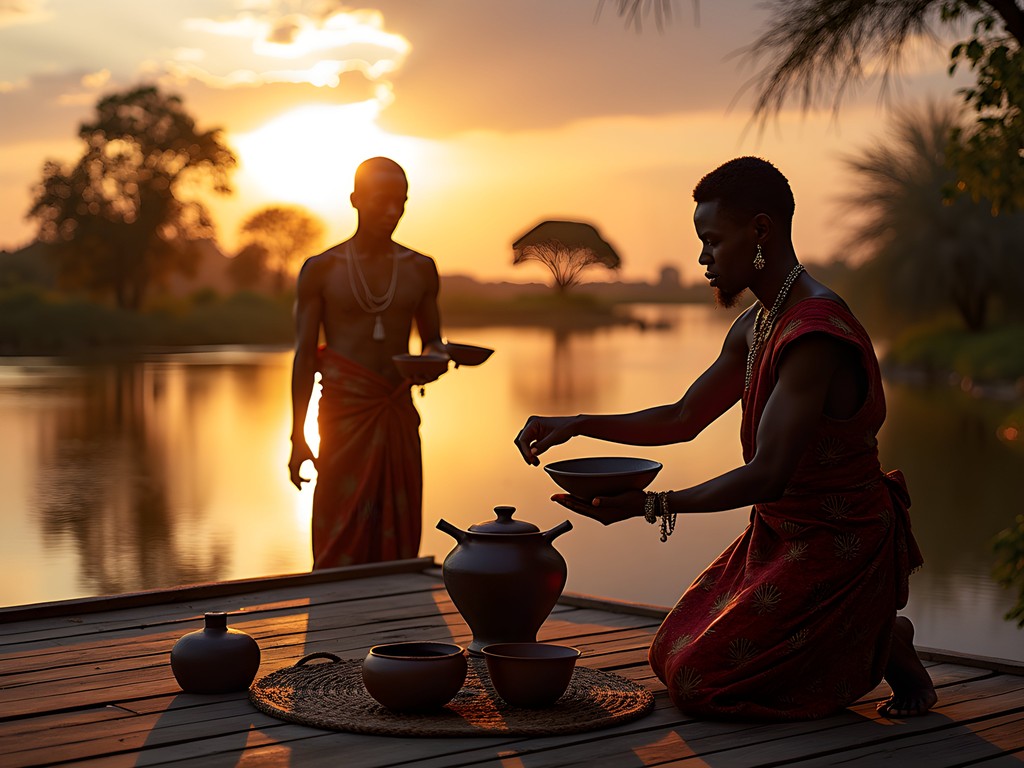
💡 Pro Tips
- Ask your guides about their childhood in the Delta – many grew up in local villages and have fascinating personal perspectives
- Support local artisans by purchasing authentic crafts directly from creators when possible
- Learn a few basic greeting phrases in Setswana – locals genuinely appreciate the effort
Sky to Water: Multi-Perspective Safari Experiences
The true magic of an Okavango safari lies in experiencing this remarkable ecosystem from multiple perspectives – each revealing different secrets of the Delta's complexity.
My journey began with a scenic flight from Maun in a small Cessna, providing the essential overview of this water miracle. From above, the Delta resembles a massive hand with fingers stretching into the Kalahari – blue veins bringing life to an otherwise tawny landscape. The pilot pointed out massive elephant herds that appeared as tiny dots from our altitude and explained how the annual flood pulses through the system like a slow-motion heartbeat.
This aerial perspective proved crucial for understanding what makes the Okavango so special – it's an inland delta that never reaches the sea, instead fanning out across the desert before evaporating in the African sun.
For capturing these aerial vistas, my compact camera was perfect – small enough to use comfortably in the tight confines of a bush plane but with image quality that captured the Delta's intricate patterns and colors. The zoom range allowed me to photograph both vast landscapes and zoom in on wildlife spotted from above.
Once on the ground, game drives in specialized safari vehicles explored the islands and dry areas, while boat safaris navigated deeper channels inaccessible to mokoros. Each mode of transport revealed different wildlife and perspectives.
The most exclusive experience came at Abu Camp, where I joined researchers monitoring the Delta's health through water sampling. Using specialized equipment, we tested oxygen levels, sediment content, and other indicators while discussing how this isolated ecosystem responds to climate changes. As a firefighter accustomed to assessing environmental hazards, I found this scientific approach particularly fascinating – especially when the researchers explained how the Delta's floods help prevent the devastating wildfires that plague other parts of Africa.
The multi-day progression from sky to land to water creates a comprehensive understanding impossible to achieve through a single perspective. It's like exploring a cave system – you need to experience the different chambers and passages to truly comprehend the whole.
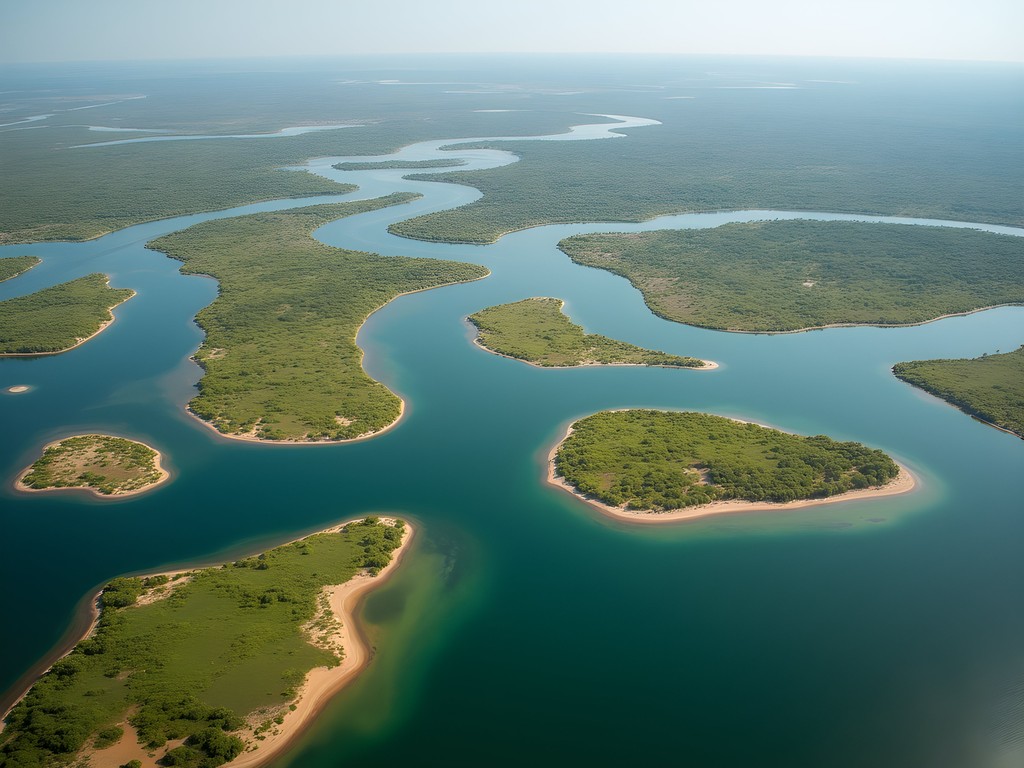
💡 Pro Tips
- Request a window seat on your scenic flight for the best photography opportunities
- Pack motion sickness remedies if you're prone to airsickness – small planes can be bumpy
- Bring a good quality dry bag for camera equipment during water-based activities
Final Thoughts
As my bush plane lifted off from the dirt airstrip, banking sharply over a herd of zebra scattered like spilled salt across the savanna, I felt that familiar pang of leaving a place that had worked its way under my skin. The Okavango Delta manages to be both serene and wild, luxurious and authentic, familiar yet utterly foreign. While my professional life has taken me to many remarkable destinations, few have combined such extraordinary natural phenomena with genuine cultural connections. For those seeking the ultimate African safari, Maun's gateway to the Delta offers experiences that redefine luxury as something beyond mere comfort – as access to moments of pure wonder in one of Earth's last great wildernesses. Whether you're tracking leopards through mopane forests or sipping tea while hippos serenade you at sunset, the Delta's magic will follow you home, pulling you back like the annual floods that give this remarkable ecosystem its life.
✨ Key Takeaways
- Combine multiple safari experiences (mokoro, game drives, boat safaris, and flights) for a complete Delta perspective
- The ultra-luxury camps offer extraordinary wildlife access while maintaining environmental responsibility
- Cultural interactions with local guides and artisans add essential depth to the wilderness experience
📋 Practical Information
Best Time to Visit
May to September (dry winter season)
Budget Estimate
$1,000-2,500 per person per night for ultra-luxury lodges
Recommended Duration
7-10 days
Difficulty Level
Moderate

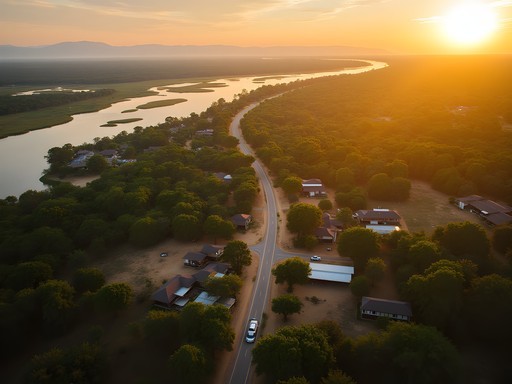
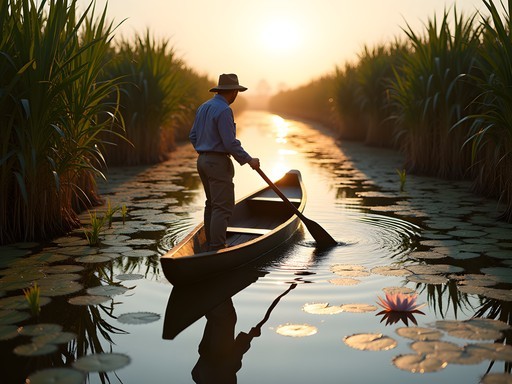
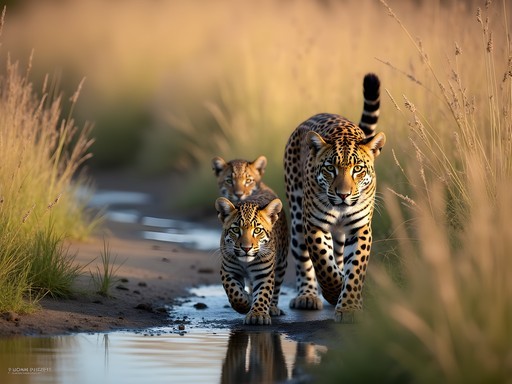
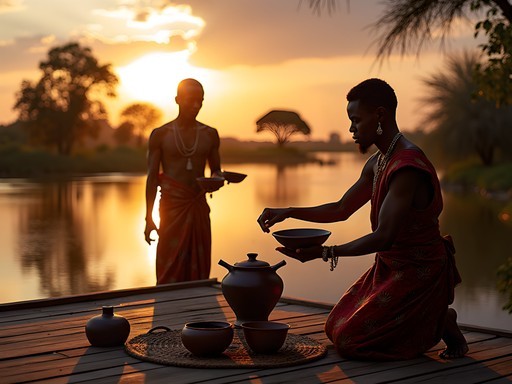
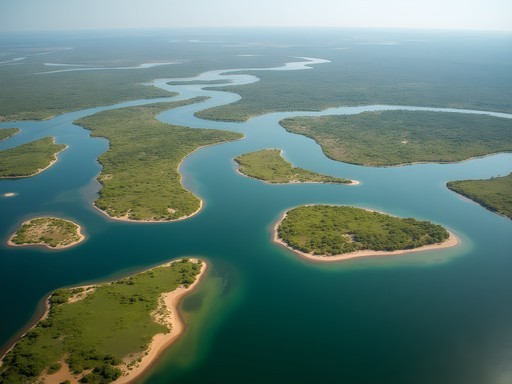


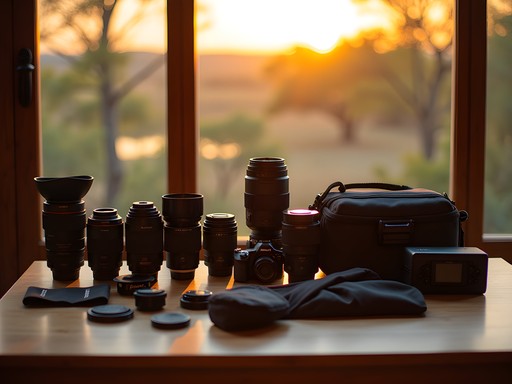
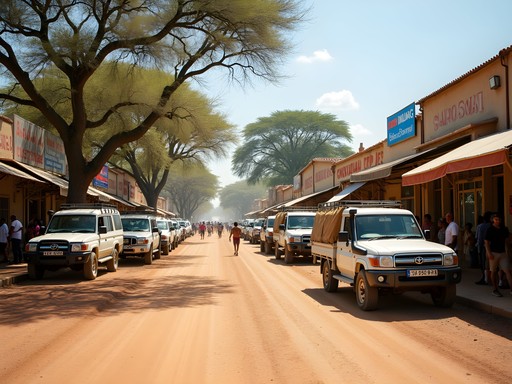
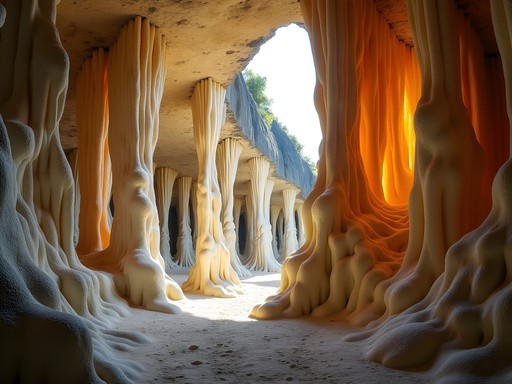
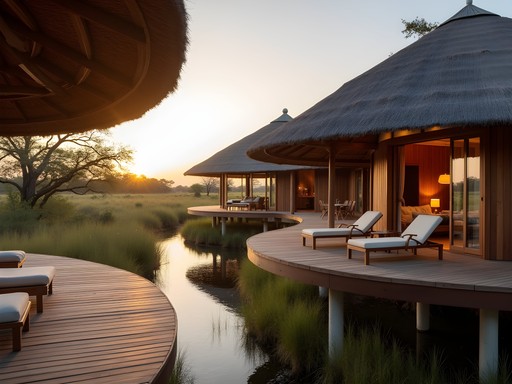
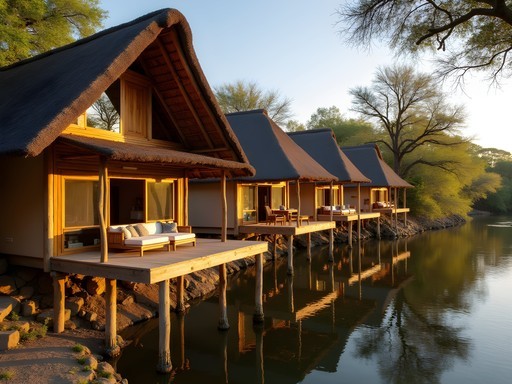
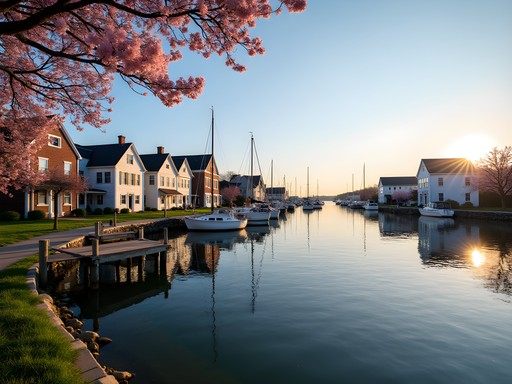
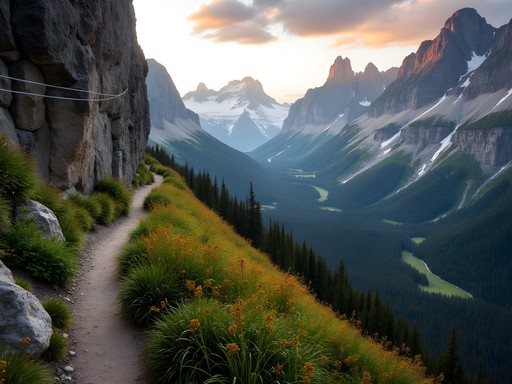
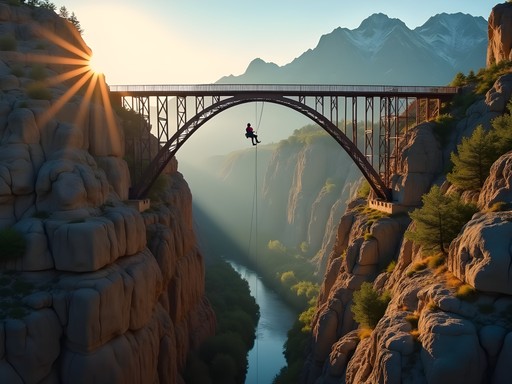
Comments
Casey Andersson
Your description of gliding through the channels in a mokoro brought back such vivid memories! I spent five nights at Vumbura Plains last year and the silence of those early morning excursions was absolutely transcendent. The guide poling us through lily-covered waterways while hippos grunted in the distance - pure magic. For anyone considering the luxury lodge route, the all-inclusive packages typically run $800-1200 per night but include flights from Maun, all meals, and twice-daily game drives. Worth every penny if it's within budget. The night sky there is something else entirely - we saw the Milky Way so clearly it looked painted on. Jacob, did you get a chance to do any night drives?
Jacob Elliott
Yes! Two night drives and they were phenomenal. Spotted a honey badger, several genets, and heard lions calling across the floodplains. Absolutely unforgettable.
smartpro
Love the photos!
Jean Wells
Jacob, your timing in September was perfect - you caught the tail end of the dry season when wildlife concentrations peak. I've visited the Delta three times across different seasons, and the water levels dramatically alter the experience. May-August offers the best game viewing as animals cluster around shrinking water sources, while December-March transforms the landscape into a birding paradise with over 400 species. One critical note: malaria prophylaxis is essential year-round, and the mosquito pressure increases significantly during wet season. Your cultural connection section resonated - the Bayei people's traditional ecological knowledge is remarkable and often overlooked in safari narratives.
wandermate
Which season would you recommend for a first timer?
Jean Wells
July-September without question. Optimal wildlife, lower water levels for easier navigation, and more comfortable temperatures.
vacationexplorer
How much did the mokoro expedition cost? Trying to figure out if this is in our budget or not
Jacob Elliott
Hey! The 3-day mokoro trip I did was around $450 USD per person, but you can find shorter day trips from $80-120. Definitely worth shopping around in Maun!
vacationexplorer
Thanks! That's actually more doable than I thought
skyace
This looks absolutely incredible!! Adding to my bucket list right now
Megan Martin
Excellent overview of the Delta experience, Jacob. For business travelers like myself who might be extending a Gaborone trip, Maun makes for an efficient wilderness add-on. Most don't realize there are daily flights from Gaborone to Maun taking just over an hour. Even with just 2-3 days, you can experience a meaningful Delta safari. I'd recommend booking accommodations that include airstrip transfers - the logistics can be challenging otherwise. Also worth noting: many lodges offer decent WiFi these days, so you can stay connected if necessary (though I'd argue the real luxury is disconnecting completely).
greenqueen
Wow those sunset photos! 😍
adventure_mom
Would this be suitable for kids? Mine are 8 and 11, fairly adventurous but never been to Africa before.
photohero
My nephew was 10 when we took him and he LOVED it. Most camps have family tents and special activities for kids. The guides are amazing with children - teaching tracking skills and identifying animal prints. Just check on malaria precautions.
adventure_mom
That's really helpful, thanks! Will look into family-friendly camps.
dreamvibes
Those sunset colors are unreal. Nature's own light show!
Sophia Gomez
Jacob, your post brought back so many memories! I visited the Delta last year for a business retreat (yes, even corporate folks need safari breaks), and it changed my perspective on wilderness. The cultural connection you mentioned resonated with me - our guide Tau shared traditional stories as we glided through lily pads, making the experience so much richer. For anyone planning a trip, I highly recommend bringing a waterproof camera - there were so many moments I wanted to capture while on the mokoro without risking my regular camera. And definitely take the time to visit a local village if possible - the basket weaving techniques are fascinating and supporting local artisans makes such a difference.
greenqueen
Did you feel safe in the mokoros? They look so tippy!
Sophia Gomez
They're surprisingly stable! The polers are incredibly skilled. Just follow their instructions and you'll be fine. Such a peaceful way to experience the Delta.
Venture X
Premium card with 2X miles, $300 travel credit, Priority Pass